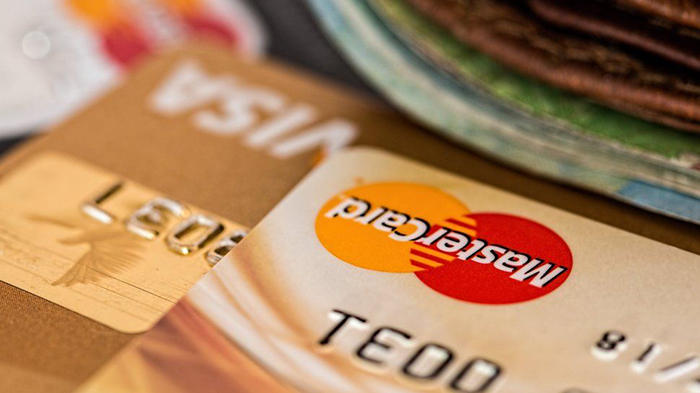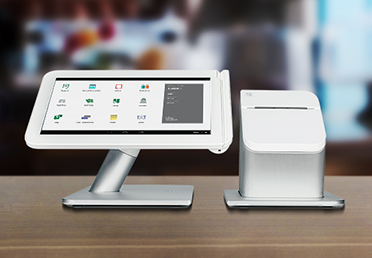How To Choose A Payment Processor
Trying To Decide On The Best Payment Processor For Your Business?
If your business plans to accept debit and credit cards — whether in person, by phone or online — you’ll need to choose a credit card payment processor to accept them. Although you may pay some upfront costs and ongoing credit card processing fees for doing so, going from a cash-only business to one that accepts credit and debit cards could lead to a big boost in sales. So how do you pick from the many credit card payment processors that are out there?
With hundreds of credit card processors available and with the many ways in which businesses can accept credit and debit cards, it’s easy to feel like you’re in over your head.
You might be surprised to learn that the wrong way to choose a credit card payment processor is to base your decision solely on cost. Many companies seem to offer cheap services, but the old adage “you get what you pay for” definitely applies. If a credit card payment processor offers you prizes and discounts, you should be aware that you will ultimately pay for these incentives by paying higher prices for certain categories of cards and add on fees, such as annual or monthly membership fees and exorbitant cancellation fees. Don’t hesitate to negotiate these expenses with your vendor.

From Which Credit Card Payment Processor Should You Get Your Merchant Account?
There are many credit card payment processing companies that offer merchant accounts that let small businesses accept credit cards in retail stores, on the Internet and even with a cell phone. But finding the right one for your company isn’t easy.
For starters, most banks and credit unions don’t offer merchant accounts directly. They will have a relationship with a payment processor. They offer merchants a menu of services with a “discount” or incentive to select their processor. For the most part they are relying on their “relationship” with you rather than the quality of their services or pricing. These are the very same institutions that shuffle their managers from town to town and branch to branch to defeat any attempt to establish those very relationships.
Instead, many businesses decide to deal directly with a broker like Canada First to secure their merchant account. They get a personal representative who understands their business requirements and can get them the payment processing services they need.
Your customers and clients expect you to make payment processing easy and fast. You need your processor to keep on top of the rapid changes in technology. Whether it is mobile processing or online sales you want an expert to help you deal with different fee structures and different rules.
When you are process credit card orders online, the transaction has to pass through an online gateway system. Whatever shopping cart software you choose has to interface with these gateways. Not all shopping carts work out of the box with all gateways. You need to be sure the shopping cart you plan on using will work with the merchant card provider you choose. You can find out more about accepting credit cards online here.
How To Compare
Credit card processing fees, transaction fees and statement fees vary a lot.
The best credit card processor is not necessarily the one that offers you what appears to be the lowest advertised cost, but one that can accommodate your business’s unique needs.
The best processor for you will allow you to pick and choose the types of services that are best suited for your products and services, it will be budget friendly and it won’t enforce stringent requirements or restrictions just because you’re a small company.
To help you compare merchant account providers – Here is an easy Sixteen Point Checklist you can use to make sure you’re getting the best deal.
Is Cost Plus Pricing An Option?
If the answer is no, go elsewhere. With cost-plus pricing, you can see exactly what MasterCard or Visa charges (the interchange fee), plus what you’re paying the processor. If you choose a tiered-payment system, however, fees are not as easily identifiable: You could be charged one or two or three different fee levels for each transaction, depending on the type of card (i.e., Rewards credit cards cost more per swipe than standard ones) and how it’s processed (i.e., if the customer is present, it’ll save you in fees). Processors can more easily overcharge you in this pricing structure, without you recognizing it.
Do They Charge Application and Setup Fees?
Some credit card processing companies may charge you a fee just for applying for the processing service, some do not. Setting up the necessary equipment to accept credit cards may cost you extra as well. This fee can vary widely, depending on the company, so ask what, if any, charges will be applied.
What Fees Will You Be Charged In Addition To The Cost Of Each Transaction?
What Is The Interchange Fee That You Will Be Charged?
Interchange Fees, also known as the Discount Rate, is where you’ll accrue the majority of the cost of having a merchant account and using the services of a credit card processor. The Interchange Fee is the fee charged for every transaction you process, and is paid by the payment processor to the card-issuing bank.
The rate you’ll pay for a transaction ultimately depends on several factors, including the type of card accepted (credit, debit or rewards card), the type of transaction (if it’s done in store, by phone or online), and the size of each transaction (larger and fewer transactions result in lower fees). In-store transactions will cost you less in interchange fees, since the card is physically present, meaning there’s less risk of fraud.
What, If Any Transaction Fees Will You Will Be Charged?
A Transaction Fee may be applied in addition to the Interchange Fee. Every time someone uses a debit or credit card to make a purchase, the processing company will charge you a fee. These fees can vary to a great extent from processor to processor.
Will You Be Charged Any Monthly Statement Fees?
Most credit card processing companies charge a monthly statement fee to cover the expense of mailing you a statement. It can cost from as little as $5 to as much as $15 per month.
Are There Any Monthly Minimum Fees?
A monthly minimum fee refers to a minimum amount in fees the processing company must collect in any one month, generally, to cover the administrative costs of carrying your merchant account. If you don’t meet or exceed this minimum amount, the processing company will charge you more in order to meet the minimum. For example, the company’s monthly minimum fee may be $25; if your total credit card transaction fees one month are $20, the processor will charge you $5 to make up the difference.
Is There A Monthly Gateway Access Fee and If So, What Is It?
Many processors charge you this monthly fee for providing a payment gateway, the system which transmits transaction data from your processing system to the credit card companies. This is particularly true for online shopping carts and other “virtual” transactions. Monthly fees vary but are generally between $10 and $30.
Is There A Termination or Early Cancellation Fee?
Ideally, you want a processor that won’t charge fees for early cancellation or termination of your contract. Be careful, because such fees can range anywhere from a few hundred to a few thousand dollars. You can ask that a fee waiver for cancellation or early termination be included in your contract.
Avoid processors that stipulate a “liquidated damages” termination fee, which means you’ll be charged for the estimated amount of the full contract, if you cancel before it expires.
As you can see, there are quite a number of credit card processing fees your your payment processing company may charge.
It’s important to make sure you understand all the fees and service terms of your contract before you sign up. if you have any questions or concerns, ask a company representative for an explanation. If they can’t provide you a detailed explanation on any costs or fees, it might be time to move to another processor.
Learn More About Credit Card Processing Fees
Are Flexible Payment Options For Terminals Available?
Ask whether you will be locked into long-term rental contracts or whether the processor can provide you with options to buy or lease-to-own your processing terminals?.
Are The Terminals Equipped To Accept Technological Upgrades?
Ask whether you will be locked into long-term rental contracts or whether the processor can provide you with options to buy or lease-to-own your processing terminals?
How Long Will It Take To Set Up Your Merchant Account?
It should be easy for you and your employees to set up your end of the processing system. Find out how long the payment processor will take to set up your account and deliver and / or install the equipment so you can plan accordingly.
If it seems like it might be a complicated task, make sure the processor will provide some support.
What Payment Types Will You Be Able To Accept?
You want to make sure that your payment processor accepts all major credit and debit cards so you won’t be faced with the possibility of having to turn away potential customers. So make sure that the payment processor you choose accepts most major credit cards, especially Visa and MasterCard.
Is The Payment Processor Capable Of Accepting New Payment Technologies?
Does your business have a lot of tech-savvy customers? If so, you might want a payments processor with near-field communication (NFC) technology, so you can accept digital wallets such as Apple Pay and other Tap & Go processing. These devices allow customers to make purchases with a simple touch of their smartphone or tablets.
How Easily Will The Payment Processor Integrate With Your POS Or Online Shopping Cart?You
If you have a Point of Sale System, ask whether the processor is able to integrate with your existing point of sale system or whether you will need to change your existing setup?
The software that connects your online shopping cart and your processor is known as the ‘payment gateway’. Although most processors work with most major shopping cart providers you need to enquire to be certain it will work with the one you have in mind.
Is A Gateway With Recurring Billing, Re-billing, and Customizable User Access Levels Available?
Ask whether the payment processor will allow you to manage recurring payments and immediate processing of transactions from repeat customers, without re-entering customer information? This can be a real time saver if your business uses recurring billing of your customers.
Does The Processor Provide Real Time Processing?
When you make a sale, you want it to process as quickly as possible, so the processing company should offer real time processing, that is never delaying your transactions.
Does The Processor Provide Real Time Reporting?
Real-Time Reporting allows you to follow your business payments performance anytime, from anywhere. Ask your merchant account representative whether you can export business reports in your preferred file formats (XML, Excel, PDF, etc.).
Does The Payment Processor Use Sophisticated Security and Fraud Prevention Tools?
Ask whether the payment processor uses sophisticated fraud and security tools to protect your business and your clients. Do they meet all PCI standards, allowing your business to benefit from additional reliability?
The payment processor should also provide strong fraud protection measures. Some of these measures include address verification, a SSL security certificate and CVV2 (that three-digit security number on the back of a credit card).
What Kind Of Merchant Support Is Available?
While processing terminals and mobile applications are generally pretty easy to use and problem free, you might need help setting up or when, on a rare occasion, when, for example, your terminal malfunctions or if you have questions about your monthly statement, such as confusing fees.
Ask whether the processor provides customer support that will help you deal with any issue, including chargeback resolution, risk monitoring, etc.? Look for a processor that offers direct help from an account representative and phone support available 24 hours a day, 7 days a week
A helpful account representative should be able to explain any fees or costs you don’t understand. And in the end, it might be worth paying a little more in fees to avoid unreliable, confusing service for your business.
Does The Processor Have Fully Redundant Systems?
Does the processor have backup servers, to avoid downtime and keep your business up and running 24/7?
Can The Processor Provide You With Quick Access To Cash?
Many processors have loan systems which allow a business to borrow against processing income they will earn in the future. Such flexible financing can help you grow your business. Ask whether there are restrictions or interest charges placed on loans, or can you get a loan that is free from fixed payments, timeframes and interest?
Let's Work Together
Get in touch and ask us for a quote or ask a question about what solution is best for your business. Call us at 888-616-6967 or click to send an email. We’re here to help.



